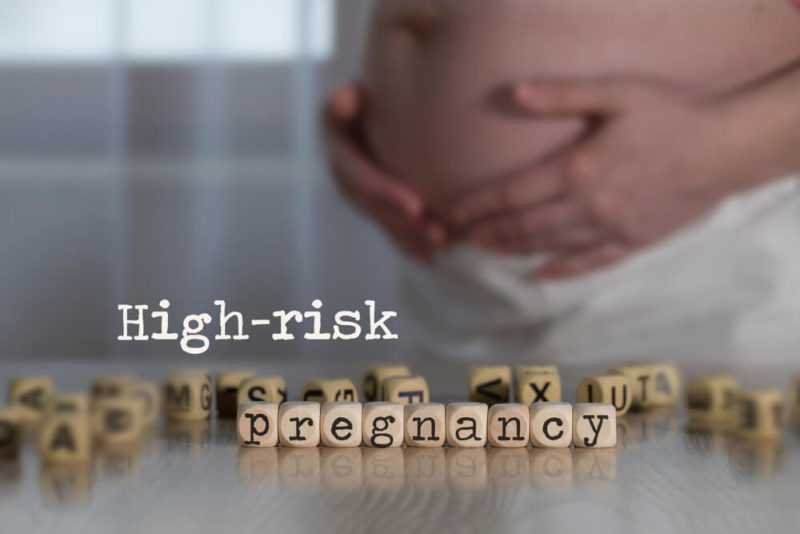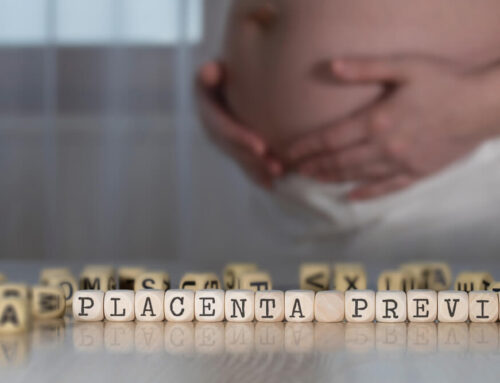High-risk pregnancy, unfortunately, occurs surprisingly often. Such pregnancies involve serious health risks for the mother, her child, or both. It’s important to note that certain factors can help identify women who are likely to deal with such a pregnancy; one of the more important ones is age. Generally speaking, the older you are, the riskier the pregnancy will be; this doesn’t mean that you won’t be able to give birth to a healthy child over a certain age.
Thankfully, some specific tools and methods allow doctors to improve the management of high-risk pregnancies and avoid potentially dangerous complications.
What Is a High-Risk Pregnancy and How Often Does It Happen?
In the United States alone, a high-risk pregnancy occurs in about 50,000 cases per year. Worldwide, it is estimated that high-risk complications appear in four to seven percent of all pregnancies. Luckily, due to the advancements in modern medicine and specialized doctors for high-risk pregnancies taking care of the future mother, a lot of said pregnancies end positively with the birth of a healthy baby.
Still, this doesn’t change the fact that women with a high-risk pregnancy need special care. They need to be observed closely, so the doctors can react in time if need be. Sometimes, such care is necessary even after giving birth. When we talk about what a high-risk pregnancy is, we have to state that frequently, both the mother and the child should be given special care; otherwise, they can suffer from various different health problems.
It is, however, also confirmed that quite a lot of women experience a normal pregnancy and give birth to a perfectly healthy baby, despite being labeled high-risk. However, since it is almost impossible to guess what high-risk pregnancy will end on a positive note, all of them have to be treated as equally important.
Causes and Risk Factors of a High-Risk Pregnancy

There are many risk factors and causes of a high-risk pregnancy. Women affected by them should always watch the development of their pregnancy very closely.
Medical Risk Factors
The most crucial medical risk factors are preexisting conditions. When it comes to what a high-risk pregnancy is, this is the most common cause for concern, even if the preexisting health conditions aren’t considered severe. Sometimes, the milder variants of diseases are exactly as dangerous, especially for long-term consequences. In that sense, management of high-risk pregnancy focuses a lot on managing potential preexisting health issues. These include:
- Covid 19
- Diabetes
- High blood pressure
- AIDS
- Obesity
- Bad mental health
- Polycystic ovary syndrome
- Kidney diseases
- Thyroid disease
Age Risk Factors
Age is also one of the most important factors behind a high-risk pregnancy. First of all, both people older than 35 and young people under the age of 17 may suffer from a highly risky pregnancy. This is because both of these groups are less likely to get through prenatal care than people aged between 18 to 35. Another risk is that the labor may start prematurely.
High-Risk Pregnancy Symptoms and Complications
So, when, exactly, should you go and visit a doctor? There are quite a few high-pregnancy symptoms that should make you realize that not everything is going smoothly. These include the following and require immediate medical attention:
- Dizziness and fainting
- Fatigue
- High fever
- Vaginal bleeding
- Breathing trouble
- Abdominal pain
- Chest pain
- Swelling or redness of your face and limbs
- Depressive thoughts
- Your baby’s movements slow down
As mentioned, not all high-risk pregnancies end badly, far from it. However, if you ignore the high-risk pregnancy symptoms, the complications that may follow can be pretty severe. This is precisely why proper management of high-risk pregnancies is a must. Said complications may include:
- Preterm delivery
- Emergency C-section
- Birth defects
- Extremely high blood pressure due to pregnancy (preeclampsia)
- Pregnancy seizures (eclampsia)
- Excessive bleeding during or after delivery
- Stillbirth
- Problems with the baby’s development in the future
- Miscarriage
Diagnosing and Managing a High-Risk Pregnancy
The good news is that even if you are affected by some of the said symptoms, they’re not necessarily signs of a high-risk pregnancy. However, the only way you’ll be able to tell if something serious is going on is through a doctor’s appointment.
A variety of tests will be performed before the final diagnosis can be reached. First of all, your blood and urine will both be tested in order to check for possible genetic conditions that might be the cause of a high-risk pregnancy. Next, ultrasonography will be done so that the doctors can check for any potential birth defects. Finally, the medical team will make sure your unborn child is getting enough oxygen, using a biophysical profile to monitor the child’s breathing and movements, as well as a non-stress test, which will monitor the baby’s heart rate.
Once it’s confirmed that your pregnancy is indeed a high-risk one, a number of steps will be taken to ensure that the complications do not occur. You’ll consult a maternal-fetal medicine specialist as well as have an appointment with your obstetrician to discuss further steps. You can also expect a variety of new tests, including second ultrasonography. The goal is to observe both you and your baby and monitor you both closer, which will allow the doctors to better understand what the cause of such a risky pregnancy is.
Outlook of a High-Risk Pregnancy

Luckily, many women who experience high-risk pregnancies successfully give birth to a completely healthy baby. The prognosis gets better every year as new breakthroughs are being made and new treatment methods are discovered on a regular basis. That being said, even if your pregnancy ends on a positive note, you may suffer from a higher risk of different health problems in the coming years. Such problems include:
- Type 2 diabetes
- Stroke
- Cardiovascular disease
- Postpartum depression
There are also a lot of problems that could affect your child, such as:
- Behavioral and mental health problems
- Gastrointestinal disorders
- Breathing trouble
- Obesity
- Neurological problems
- Developmental delays
You may also experience complications in your future pregnancies. Generally speaking, if you are experiencing a high-risk pregnancy now (or have in the past), there is quite a big chance that your next pregnancies can become high-risk as well. This is precisely why regular doctor checkups are crucial.
Many women hear that their pregnancy is high risk on a daily basis. This diagnosis is never easy, however, do know that there are certain methods you can use to lower the possibility of a high-risk pregnancy. First of all, you should absolutely stop smoking, doing drugs, and/or drinking alcohol. Try and maintain a healthy body weight before becoming pregnant. If you need to take any medicines during your pregnancy, especially on a regular basis, make sure they are safe for your baby. Finally, manage any preexisting health problems you might have.
If you’re worried about your future or current pregnancy for whatever reason, you are welcome to pay us a visit at obstetrics clinics in Weston and Pembroke Pines. You can learn a lot from preconception appointments or get the care and treatment you need so that both you and your child remain healthy and happy.






